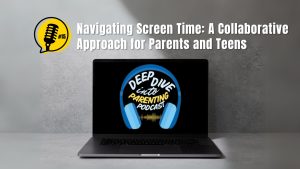I am a School Resource Officer in a Southern California city. I received a call for service this week from a parent whose son was refusing to go to school. Over the past three years, I have received many of these type of calls. The scenario is very predictable. It usually entails a single mother with a teenage son that lacks discipline and structure in their lives.
This call was no different. The mother, let’s call her Janet, met me on the steps to her apartment door and told me her son, let’s call him James, was in his bed refusing to go to school. His father has never been in the picture and James has been diagnosed with ADHD.
I know James. He is one of my 8th grade students at one of my 14 schools I am responsible for. I have talked to James on several occasions when he has been brought to the front office for disrupting one of his classes. He’s a nice kid but suffers from severe ADHD.
Janet tells me that when he refuses to go to school, he plays on his computer all day. She’s tried to take his iPad and computer away to discipline him, but she said he “jumps on her” when she does. Janet is a small woman. She works full time to support her only son and the small apartment they live in. As she tells me how she is loosing control over her son, tears start to well up in her eyes. My heart goes out to single parents that are overwhelmed but still do everything they can for their children. I asked her if I could help her. I asked her if she would like to have me hold on to her iPad and the power cord to her son’s computer until the end of the week. She said, “Yes, please.”
I went into James’ room and found him in his bed, dressed for school. James looked surprised to see his School Resource Officer standing in his bedroom. I told James I was going to hold his iPad and power cord until Friday after school. It was Tuesday. If he went to school everyday and was on time, he would get his iPad and computer back after school on Friday.
Guess what? He got himself out of bed and went to school. I saw him the following day at school too. Still having problems in his classes, but he was off his mom’s back (literally) and where he was supposed to be.
Children can become addicted and form an unhealthy dependence on “screens.” Children who are autistic and diagnosed with ADHD are especially vulnerable to becoming lost in a digital world and miss out on real relationships and life experiences.
What can parents do? Establish screen time rules. Download and use my screen time worksheet to plan a weekly screen time schedule. Computers and many game consoles have parental control that have time limit settings.
I am publishing my first book, Parenting in a Digital World, next month. The book will help parents establish screen time structure and bring balance back to their child’s lives, and how to turn on parental controls on every computer or game console in their home.
When my book comes out, I am going to hand deliver a copy to Janet. I wrote this book for her, and every other parent that wants to raise a healthy kid.







